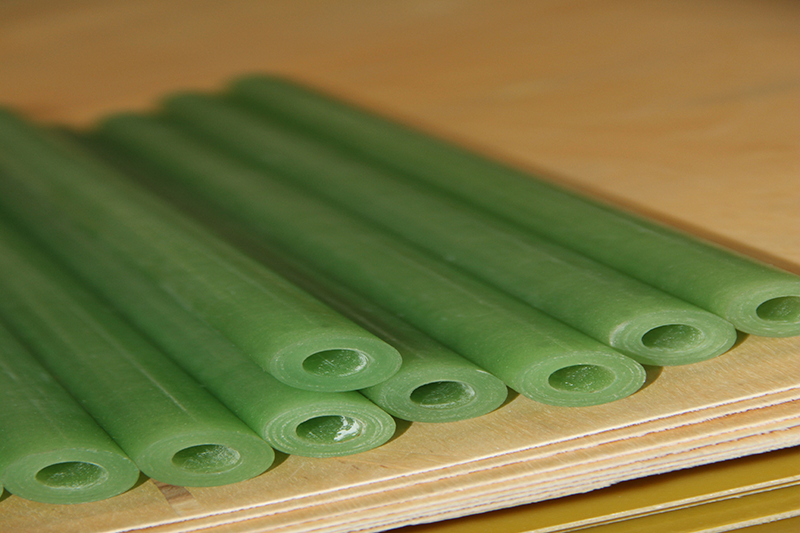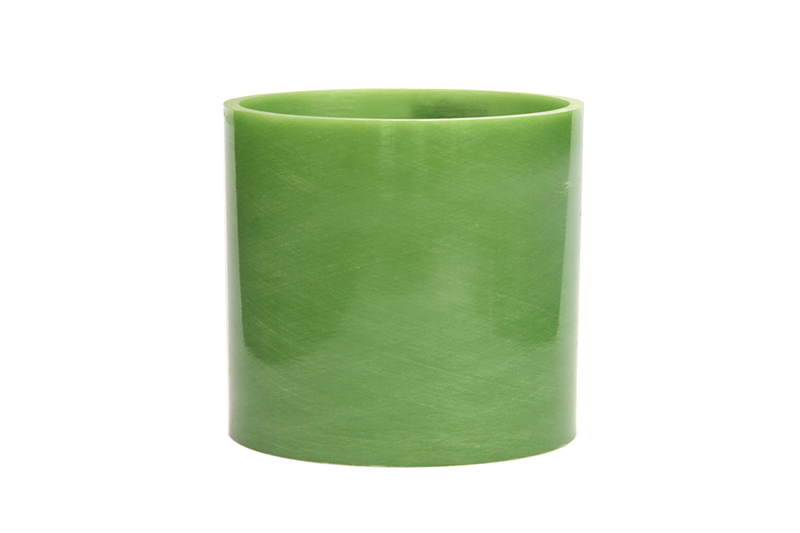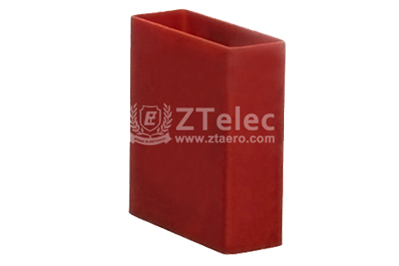Epoxy Glass Tube is composed of glass fiber yarn impregnated with epoxy resin in a certain proportion. It is then formed into a gel-like substance and processed using wet rolling and drying techniques to reinforce its thickness. It can achieve a heat resistance rating of Class H and offers superior electrical and mechanical performance.

1.High strength
The combination of glass fiber reinforcement and epoxy resin provides the tube with outstanding strength and durability, enabling it to withstand high pressure and impact forces.
2.Corrosion resistance:
Epoxy resin exhibits excellent corrosion resistance, allowing the epoxy glass tube to be used in various corrosive environments, such as the chemical and petroleum industries.
3.Insulation properties
The epoxy glass tube has excellent electrical insulation properties, effectively isolating currents and preventing electrical hazards.
4.Wear and high-temperature resistance
Epoxy resin has high heat resistance, enabling the epoxy glass tube to operate stably in high-temperature environments. It can typically withstand temperatures above 150 degrees Celsius. Additionally, it has good wear resistance, allowing it to withstand prolonged friction and have a longer service life.
1.Cost
Compared to traditional metal pipes, epoxy glass fiber tubes tend to be more expensive.
2.Brittle nature
Glass fiber tubes may be prone to fracture when subjected to strong impacts or bending, unlike metal pipes.
3.Poor visible light transmission
Due to the nature of glass fibers, epoxy glass tubes have limited transparency, making them unsuitable for applications requiring transparent conduits
Used as the main insulator in Class H dry-type transformers, load tap changers, reactors, surge arresters, SF6 inductive circuits, and other electrical applications.

Non-circular tubes include square tubes and elliptical tubes, which are manufactured using extrusion processes. They can function as components in the insulation structure of electrical equipment and be used in transformer oil and humid environments. They are mainly suitable for transformers, reactors, and other applications.

Epoxy glass tubes are essential in various industries, including electronics and electrical, automotive and aerospace, medical and pharmaceutical, and food and beverage. These industries rely on the advantages of epoxy tubing to provide protection and insulation for their products, ensuring the safe and efficient operation of their systems.
1.Application requirements:
Determine the specific application requirements for using epoxy glass tubes. For example, is it for the chemical industry, power transmission, aerospace, or other fields? What pressure and temperature conditions will the tubes need to withstand?
2.Material characteristics:
Understand the material characteristics of different types of epoxy glass tubes, such as strength, corrosion resistance, and insulation properties. Ensure that the selected tubing meets your application requirements.
3.Size and specifications:
Based on your specific needs, determine the required tube dimensions, wall thickness, length, and other specifications. Ensure that the chosen tubing is compatible with your application environment and connection methods.
4.Quality and certification:
Choose reliable suppliers to ensure that the purchased epoxy glass tubes have high quality and certifications. Inquire about the product’s quality assurance and related certification documents from the supplier.
5.Cost considerations:
Consider the prices and performance of different suppliers, taking into account your budget limitations. However, do not solely focus on low prices while neglecting quality and reliability.
6.Consultation with experts:
If needed, consult with experts or engineers to obtain more detailed advice and guidance.
1.Is epoxy glass tube toxic?
Epoxy resin glass tubes are non-toxic, odorless, and non-polluting materials. The use of epoxy glass tubes also helps reduce environmental impact.
2.How long can epoxy glass tubes be stored?
Proper storage methods include wrapping the tubes with packaging film and packaging them in cardboard boxes. Store them in a dry and clean indoor area to prevent moisture. Epoxy glass tubes can typically be stored for up to 12 months.
The versatility and advantages of epoxy glass tubes make them an ideal choice in many industries. Whether it’s for insulation applications in the electronics field or corrosion resistance requirements in the chemical and medical fields, epoxy glass tubes have demonstrated excellent performance. Their high temperature resistance, electrical insulation, mechanical strength, and corrosion resistance give them a wide range of potential applications.
If you need our products please write down any questions, we will reply as soon as possible.
There are three ISO certificates for quality certification. The certificates will be shown later. ISO
After receiving the advance payment, the production cycle is 15-25 days. And the transportation cycle should be calcul……
We supply with installation guide and user manual for each transformer. If you do not understand them. We will offer v……